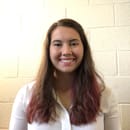Graduation is fast approaching, and while some seniors have had jobs lined up for months, many of us are still anxiously awaiting admissions decisions and trying to hash out post-grad plans. I’ve applied to PhD programs in Cell and Molecular Biology, and it has been a long and emotionally taxing process. Typically, if a program is interested in you, they invite you for an on-campus interview weekend. So you get invited to an interview, yay! What now? What do you wear? What do you say? How do you act? Here are some key things to keep in mind while preparing for a successful and low(er) stress on-campus interview:
- Ask your mentors for help preparing
-
Professors, research advisors and current graduate students you know in your field are excellent resources when it comes to preparing for your interview. They can share what they look for when students interview for their lab, things that impress them and things to avoid. Grad students can help prep you for what the weekend might look like and what to expect. It’s very likely that your academic support system will be full of tips and tricks. They’re also great cheerleaders!
- Practice
-
Interviews are really nerve-wracking, so practicing your answers to the questions you will likely be asked can be a really valuable experience. My research mentor set me up to do several mock interviews and receive feedback afterwards. This not only helped me work through what I wanted to say, but helped me feel more confident in my responses. Grab someone to run you through some key interview questions (many of which can be found on the internet).
- Do your research
-
Learn as much as you can about the program before you go. This will convey interest and help you figure out if there’s anything you really want to find out when you get there. Also, be sure to read up on any potential research advisors you may meet while at your interview. It will help you engage them as well as show your enthusiasm about their work.
- Review your application, especially your personal statement
-
Be sure to know what you said about yourself and your research before you get there. Review your motivation for pursuing a graduate degree and be sure to revisit the reasons why you like the program. You’ll be asked what drew you to the school and the program many times throughout your visit. Be prepared with a genuine but slightly polished answer, highlighting what you value about their graduate program.
- Have a list of general questions you can ask anyone about the program or their lab
-
One major thing I learned while preparing for my interviews was that you must ask questions. One of the major turn offs for potential advisors and interviewers is when candidates don’t have questions. It conveys that either you’re not paying attention, not that interested, haven’t done your research or you just don’t care. You don’t want them to think any of those are true. Think of a list of questions you could ask anyone about the school or program at any time so that if your mind goes blank when they ask if you have questions, you have some fallback options to pull out at a moment’s notice. This will also help decrease your stress over having to produce new questions all the time. It is especially important to ask questions about a prospective advisor’s research as they tell you about their lab and their work. It shows you are engaged and following the conversation.
- Prepare your outfits and try them on
-
Make sure you have outfits to wear on all days of your visit. Try things on before you go to make sure they still fit, or leave yourself plenty of time to shop for new clothes before you go. Wear comfortable shoes—you will do a lot of walking. Even if you think your shoes will be okay, bring bandaids with you everywhere for unexpected blisters. Bandaids saved the day more than once during my visit. Typically, business casual attire will be appropriate throughout the visit. This is something your research mentor can advise you on as well.
- Relax!
-
Try not to stress yourself out, you’re a great candidate! They’re interviewing you because they’re interested, especially in the biological sciences where they generally pay for your visit. Remember all of the work you’ve put in to get here, you’ll be great!


